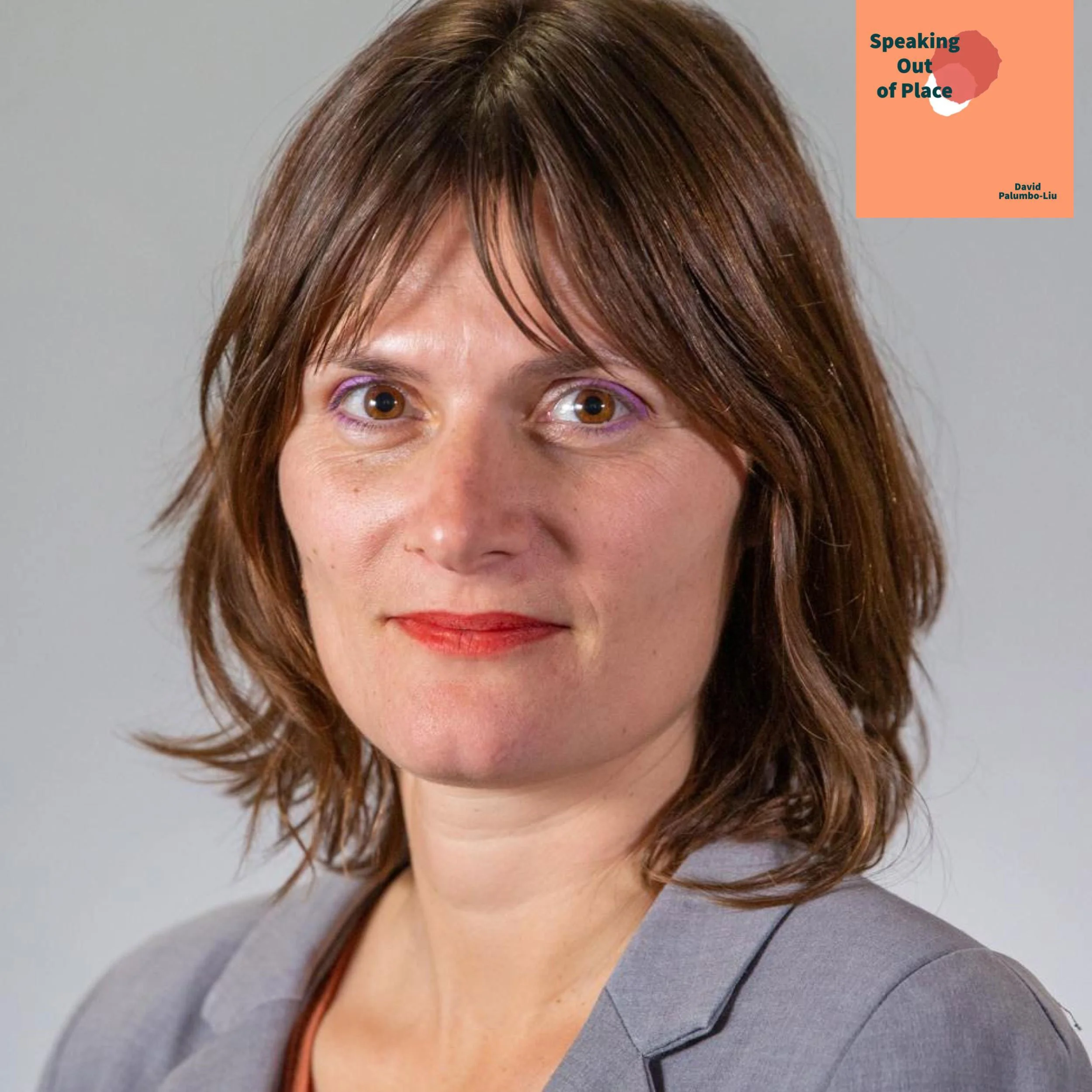In this episode of the Speaking Out of Place podcast, Professor David Palumbo-Liu interviews Dr. Jennifer Gómez about her new book, The Cultural Betrayal of Black Women and Girls: A Black Feminist Approach to Healing from Sexual Abuse, which takes on the particular difficulty of centering the voices and experiences of Black women and girls when confronting sexual violence in the Black community.
In her foreword the book, Thema Bryant, President of the American Psychological Association writes: “This important work … is a love song to the survival of black sis and trans women and girls. For love to be liberating it must see and affirm survivors holistically. Gómez calls psychologists and other mental health providers to adopt courageous compassion, which means sharing concern and outrage at the realities of sexual violence as well as concern and outrage for the injustices that contextualize the trauma and recovery process for black women and girls.”
In our conversation Dr. Gómez explains how she fought to reconcile the need for solidarity in the Black community with the demand that the abuse of Black women and girls be confronted and healed. Alongside this struggle was her effort to change the ways psychologists and others silence these traumas.
Jennifer M. Gómez is an Assistant Professor in the School of Social Work and a Faculty Affiliate at the Center for Innovation in Social Work & Health at Boston University, and a Board Member and Chair of the Research Advisory Committee at the Center for Institutional Courage. Her primary research focus is cultural betrayal trauma theory (CBTT), which she created as a framework for understanding the mental, behavioral, cultural, and physical health impact of violence on Black and other marginalized youth, young adults, and elders within the context of inequality.
Written while she was a 2021-22 Fellow at the Stanford University Center for Advanced Study in the Behavioral Sciences (CASBS), her book, The Cultural Betrayal of Black Women & Girls: A Black Feminist Approach to Healing from Sexual Abuse (American Psychological Association; 2023), provides individual, interpersonal, and structural strategies for healing.
Twitter: @JenniferMGmez1
JENNIFER M. GÓMEZ
So many of us have experienced things along this vein, and when we know that, then the feelings of isolation can be interrupted with this understanding that many of us have been through these things. And if that person over there can experience joy, well maybe I can experience joy too, and maybe this is a different kind of harm and cultural betrayal.
Sexual trauma and abuse as a collective community-level harm, that means community-level healing and personal healing. The radical hope piece for me - but it isn't hope. That's like toxic hope of like everything will be okay, everything will be fine! Instead, it's like - No, things are crappy. They're awful. And how can I still experience joy and happiness and believe that the world can be different even in the face of all the evidence suggesting otherwise? And how powerful that is. And I think the orientation that this framework has includes understanding your history, understanding your past.
This can still be a rape culture and this can still be the world that we know that it is. And I'm still going to find joy inside of myself and with the people that I love and with nature and these things can happen even as the sky is falling, you know? And the world is humbling and that's powerful.
*
Speaking Out of Place, which carries on the spirit of Palumbo-Liu’s book of the same title, argues against the notion that we are voiceless and powerless, and that we need politicians and pundits and experts to speak for us.
Judith Butler on Speaking Out of Place:
“In this work we see how every critical analysis of homelessness, displacement, internment, violence, and exploitation is countered by emergent and intensifying social movements that move beyond national borders to the ideal of a planetary alliance. As an activist and a scholar, Palumbo-Liu shows us what vigilance means in these times. This book takes us through the wretched landscape of our world to the ideals of social transformation, calling for a place, the planet, where collective passions can bring about a true and radical democracy.”
David Palumbo-Liu is the Louise Hewlett Nixon Professor and Professor of Comparative Literature at Stanford University. He has written widely on issues of literary criticism and theory, culture and society, race, ethnicity and indigeneity, human rights, and environmental justice. His books include The Deliverance of Others: Reading Literature in a Global Age, and Speaking Out of Place: Getting Our Political Voices Back. His writing has appeared in The Washington Post, The Guardian, The Nation, Al Jazeera, Jacobin, Truthout, and other venues.
Bluesky @palumboliu.bsky.social
Apple Podcasts · Spotify · Website















































































